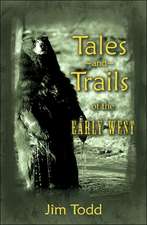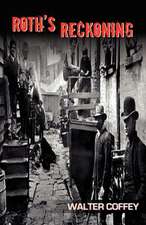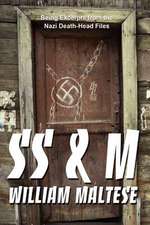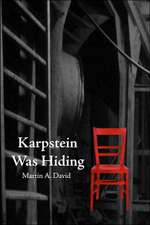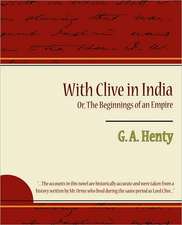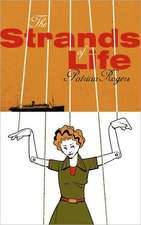Caprice And Rondo: The House of Niccolo 7: House of Niccolo, cartea 7
Autor Dorothy Dunnetten Limba Engleză Paperback – 2 dec 1998
Caprice and Rondois Book Seven in The House of Niccolo series.
-----------------------------
'A companionable fellow who now spends his time raising hell . . .'
Winter, 1473, and Nicholas de Fleury's schemes have at last caught up with him, costing everything - friends, family and firm. Losing himself in the icy port of Danzig, he drinks and fights, but most of all he forgets.
Meanwhile, his wife Gelis, bruised from their years of dueling, sets off to find out the truth of her husband's lost parentage - and discovers a traitor within Nicholas's close circle of friends.
As Nicholas is drawn eastwards in a search for the lost gold to restore his fortunes, so the titanic forces he has long-attempted to marshal for his own ends reach out to exact a terrible price of their own . . .
'The best historical novelist since Sir Walter Scott'Sunday Times
| Toate formatele și edițiile | Preț | Express |
|---|---|---|
| Paperback (2) | 115.52 lei 6-8 săpt. | |
| Vintage Publishing – 30 iun 1999 | 126.66 lei 3-5 săpt. | |
| Penguin Books – 2 dec 1998 | 115.52 lei 6-8 săpt. |
Preț: 115.52 lei
Nou
Puncte Express: 173
Preț estimativ în valută:
22.11€ • 23.64$ • 18.43£
22.11€ • 23.64$ • 18.43£
Carte tipărită la comandă
Livrare economică 17 aprilie-01 mai
Preluare comenzi: 021 569.72.76
Specificații
ISBN-13: 9780140252309
ISBN-10: 0140252304
Pagini: 592
Dimensiuni: 129 x 198 x 35 mm
Greutate: 0.5 kg
Editura: Penguin Books
Colecția Penguin
Seria House of Niccolo
Locul publicării:London, United Kingdom
ISBN-10: 0140252304
Pagini: 592
Dimensiuni: 129 x 198 x 35 mm
Greutate: 0.5 kg
Editura: Penguin Books
Colecția Penguin
Seria House of Niccolo
Locul publicării:London, United Kingdom
Notă biografică
Frequently
described
as
the
finest
historical
fiction
writer
of
her
time,Dorothy
Dunnettearned
worldwide
acclaim
for
her
blend
of
scholarship
and
imagination.
She
is
best
known
for
her
two
superb
series
of
historical
fiction
-The
Lymond
ChroniclesandThe
House
of
Niccolo-
set
in
the
fifteenth
and
sixteenth
centuries
and
ranging
across
Europe
and
the
Mediterranean,
and
forKing
Hereafter,
the
eleventh-century
story
of
Earl
Thorfinn
of
Orkney
whom
Dorothy
believed
was
also
King
Macbeth.
In
1992,
Dorothy
Dunnett
was
awarded
the
OBE
for
her
services
to
literature,
and
in
2014
Dunnett's
most
enduring
hero,
Francis
Crawford
of
Lymond,
was
voted
Scotland's
favourite
literary
character
-
beating
the
likes
of
Sherlock
Holmes,
Harry
Potter
and
Ivanhoe.
Dunnett
died
9
November
2001,
having
sold
half
a
million
copies
internationally.
Recenzii
Praise
for
Dorothy
Dunnett
A storyteller who could teach Scheherazade a thing or two about pace,suspense and imaginative invention
Marvellous, breathtaking
Amasterpieceof historical fiction
Lashings ofexcitement, colour and subtlety
One of thegreatest tale-spinnerssince Dumas
Vivid, engaging, densely plotted- are almost certainly destined to be counted among the classics of popular fiction
A storyteller who could teach Scheherazade a thing or two about pace,suspense and imaginative invention
Marvellous, breathtaking
Amasterpieceof historical fiction
Lashings ofexcitement, colour and subtlety
One of thegreatest tale-spinnerssince Dumas
Vivid, engaging, densely plotted- are almost certainly destined to be counted among the classics of popular fiction
Extras
Chapter 1
THE WIND BLEW from the north, from Siberia, and the clatter of hail on his shutters woke the captain. He had only been in bed for an hour, but land noises disturbed him. He grunted, considered, then dragged on his robe and, without taking a lamp, made his way to the leeward side of the villa. He had built this one only last year, and put in a brick chimney-wall: warmth from the stove below mellowed the air and his mood, although his throat was wrung dry, and he was still wearing his wrinkled day shirt and hose, as when he had dropped-or been dropped-on his bed. The sleeping rooms creaked and groaned as he passed them: his house was always full. Only the single chamber, as he half expected, was empty; the door ajar, the window unshuttered. Through it he could see a paring of moon, coarse as pomegranate. He walked over and looked down below, at the blood on the snow. Then he looked beyond his gates, at the city in which his fine house was set. At the walls, the watchtowers and the icy huddle of dwellings, above which reared the stiff-necked herd of her churches, scanning the west. Danzig, at four hours after midnight in the deep cold of January, 1474.
There were others awake. Beneath the congealed thatches there glimmered jointed hair-lines of light, fine as lettering. A squat figure, forced by the wind, plunged across a cake of pink light and disappeared. Here, the alleys were snow-filled and crooked. In the New Town, there were more lamps than shrines. In the New Town, the streets built by the Knights drove across and down to the river like prison-grilles, their crowns rutted and black with wheeled traffic. The Knights, the bastards. He was still celebrating Danzig's victory over the Knights. Everyone was celebrating.
Within the room, the quality of the air underwent a change. He smiled. He said, his back to the door, 'So, how was she?'
'Whetting her claws,' Col? said. He was the only man known to the captain who could move as silently as himself, despite his height. They engaged in these exercises sometimes, stalking one another, testing, deceiving. It was part of the return the captain compelled from his guests. In winter, a seaman required to be entertained. Der harte Seevogel, Tough Seabird, they called him.
Col? said, 'Is there some problem? You need a friend to help with your buttons?' He had picked up tinder, and was lighting the lamp by his bed. Pa?el closed the shutters and turned.
'I was contemplating the scene of the slaughter. You look as if the girl got to you first, then the father.'
Col? blinked. His eyes were like pewter platters, and his real name was not Col?. The captain knew what it was, and had called him by it throughout the campaign in the north, where they had met. Then, after the better part of two years, a merchant's train coming in from the west had insisted on bringing their friend to the guild hall, even though they had only just met him in L?beck two weeks ago-such a lively, remarkable fellow was he. Name of Col? z Brugge. A one-time merchant who had decided to let his business go hang and see the world. And Captain Pa?el Benecke, looking up at this bland, bristle-chinned figure, had said slowly, 'Oh, yes? Decided to give up your business?'
'Yes,' had said the newcomer meekly.
'And come to Poland?'
'Why not?' had said the big man in a reasonable voice. 'I could see, from the little experience I had, that its people needed advice. Some hints about etiquette. A touch of help as to manners and culture. A bit of-'
Here, he had been forced to desist by the pack of genial, hard-fisted arms that rose and fell on him: it had evidently happened often before, and he accepted it amiably. When, at last, the two were alone, the captain had set himself to pin the newcomer down in another way. 'So, what's the point of all this? Of course they will find out who you are. You have an agent here, haven't you?'
'Straube, yes. He's gone to Portugal for the winter. Oh, they'll find out,' said the man they called Col?. 'But they'll also know by the time he comes back that he isn't my agent any more. I've retired from my company.'
'Why?' had said Benecke. He remembered trying to kill this man once. He remembered that the first time they met, this man had broken his arm, and later his leg.
'Why do you think?' the newcomer had said.
Benecke considered. So far as he knew, the fellow had been good at his job. The business had prospered. If he'd cheated, he hadn't been found out. That left only women. There had been two: a harridan of a wife, so he'd heard, and a little virgin who thought she was a boy. That is, there had been a lot more than two, but none spoken of seriously. The captain said, 'I think you just wanted some fun. But since you ask, I'll guess you killed the wife and raped the little girl-brother Kathi. I liked her,' said the captain with a catch in his voice. 'If you've raped her, I'll kill you.' They were both, by this time, quite full of ale.
'You think you could?' Col? said; and ducked as the captain got out his knife. Someone took it from him quite soon, and they settled to drink again. Eventually Pa?el had to ask. 'So what happened?'
'You weren't far wrong,' Col? had said. 'The wife flung me out, and the girl married somebody else. So I thought I'd get out.'
'So why here?'
'I thought I'd get out to where somebody owed me a favour. Are you busy this winter?'
The captain sat up. 'You want a job?' There were no jobs in winter. Danzig was sealed in by ice. There would be no ships in the port until March.
'No,' said Col?. 'Or not until spring. Or not until I decide where I'm going'. I just want to pass an entertaining winter with my inferiors.'
Ten minutes later, picking themselves up from the snow outside the Artushof: 'They'll never let you back in,' Benecke said.
'Yes, they will. Anyway, you started the fight, and they'll forgive you. Do I get a bed?'
'No,' had said Pa?el Benecke. 'You'd spoil my winter complaining about your women.'
'I shouldn't,' said Col?.
'You'd get into bed with my women.'
'Of course,' had said Col?. 'You couldn't stop me. That's why you don't want me to come.'
That time, no one separated them, and it was three days before either of them could talk without lisping. Col? had been living in his house ever since, and Danzig would never forget him, nor would Pa?el Benecke. He would never have to forget him. He was going to keep him in Danzig for the rest of his life. Despite the blood on the snow.
Now he said, 'So where have you left her?'
'Never mind. Anyway, she's not yours, she's mine. I got a doctor to see to the boy.'
'I thought his arm was going to come off. You ought to be chained up and put in a lazar house.'
'Come on,' Col? said. 'I'm going to tame her. Then I'm going to sell her to you.'
'Before or after you pay me for your lodging?' Pa?el Benecke said. He gazed with fascination at the scratches all over the other man's neck and arms. He said, 'What if she's diseased?'
'You're worried?'
'No,' said Benecke. 'But I'm thirsty, and the look of you is spoiling my thirst. Good night, fool.'
He left, slamming the door. You found a man you could enjoy winters with, and he still behaved, at times, like an idiot. In their first weeks together, he had discovered it. Ingenuity, yes; lunacy even, to a degree-those were acceptable, those were what the merchants from L?beck had enjoyed. But these escapades led by Col? were suicidal.
Three weeks after he came, the situation had come to a head over the bison hunt. Then they had been out of the city, travelling over snow to the forests, with their dogs, their nets, their spears and arrows. Col? had learned, God knew from where, that the beasts were enraged by red cloth, and had brought some. It had ended with the death of two men, while Col? cavorted round one of the animals in snow-crusted boots, whirling the fabric round his fur hat and calling and whistling.
It had been funny, all right. In the midst of the extreme danger that threatened them all, it was still funny to see the big man addressing the bison in prose, song and verse, while two thousand pounds of massive beast lowered its horns and skittered backwards and forth, its eyes red as lamps and the snow flying in clods from its coat as the cloth whisked about, almost touching. Then a dog got tossed in the air, and a man; and after the second man died, Pa?el gave the order and they all ran in with their spears and took the beast, to the risk of their own lives. Pa?el had led the party that harnessed the big man to a sledge and whipped him back to their lodge; he ran them into a tree on the way, and was arranging to hang Pa?el with the harness when they got hold of him again. They were none of them sober.
That was close to being all right. Winters were spent in rough play and rough punishment. But when they were back home, and had broken the news to the two men's wives, and had the bison taken off to be jointed, Benecke had got hold of Col? and sat him down by the stove and said, 'Stop it, or get out. I'm not sick of life yet. Neither were my two lads.'
'I'm culling them for you,' Col? said. 'I thought it was a tough life at sea.'
'Some seamen need to be tougher than others,' Benecke said. 'He was a pilot, one of those boys. But I notice they're all the same to you, anyway.' He waited. Then he said, 'Why don't you want to go home, my big man? Perhaps you are more of a poltroon than any of us.'
A moment passed. 'That's unlikely,' said the other man. His gaze had fallen on his own arms and hands: a bloody rut on one forearm ran into another similar gouge long-since healed. 'The bolting Bonasus,' he said thoughtfully, 'whose fart can cover three acres, and set a whole forest on fire.'
'What?' said Benecke.
'A classical allusion. Ignore it. I mean that I am staying; I wish to stay; I have no immediate plans to get rid of you, unless you start preaching three times a day, in which case your own men will drown you before I do. Is there no ale, or are you drinking nothing but buttermilk now?'
And from that time, although their pastimes had been wild enough, they had been tempered with some sort of reason. The ritual of girlhunting played its part as the winter progressed, and days became heavy and dark. Then, the young gallants would assemble their sleighs and bowl their way over the snow in a sparkling chain, bearing pasties and sweetmeats and flasks from one great timber dw?r to another, and bringing out pretty captives, smothered in furs, to be returned flushed at dusk. Every red-blooded man enjoyed that, and the homeward course through the snowfields by night, when flickering brands danced in the void, and the throb of deep voices in harmony was matched with the far, surfing trill of the bells.
Col? had, it seemed, learned some sort of lesson. And even today, although he had been reckless, it had not been quite without reason, the exploit he had proposed. The boy's hurt could not have been avoided. Unless, of course, they had been more sensible still, and killed instead of bringing back their beautiful captive. But only Col? would propose to tame a live lynx.
The captain went to see him while he was at work in a half-empty warehouse. A cage had been made, and the big man was hunkered quietly outside it, speaking at intervals. He had some meat on a stick. His voice, of an exceptional richness, kept the rhythm and cadence of song; Benecke could not make out the words. When the speaker broke off at his step, Benecke gave way to a bellow of mirth. 'Crooning, by God! Are ye taming it or giving it suckle?'
Col? jerked up his chin. Squealing, the animal flung itself back, its ruff stiff. The bars thrummed. Pa?el waited, loosening his shoulders, his hand hanging close to his dagger. The would-be tamer, instead of whirling about, thoughtfully brought up the rod and, detaching the meat, dropped it inside the cage without speaking. Then he rose and turned mildly. His face, though manufacturing anger, held the vanishing trace of another, less likely expression. Behind, the cat glared, a growl in her throat.
'A woman would be easier,' Benecke pointed out.
'Some women,' said Col?. His composure, if lost, had returned. 'What is it?' Recently, he had become more observant.
The rest of the warehouse was empty. Benecke said, 'Do you know that they say you are a spy?'
'They?'
'At the Artushof, the taverns, the wharves. They say you are an agent of Germany, planning to bring the Knights back.'
The Order of the Teutonic Knights, once so holy, had just been prised free of Danzig. Danzig and all her wealthy cluster of satellite towns was now part of Royal Prussia, and hence Poland. The King had come once to Danzig.
Col? laid the bar on his shoulder. He said, 'Well, I'm not. Haven't they noticed the agents of Germany, watching me? The King's agents as well. I don't mind. I'm not going back. I'm betraying no secrets, stealing no business. They'll see.'
'You could pass secrets on,' Benecke said.
'In winter?' Every movement was noticed in winter. From a bustling, free-flowing port, Danzig in winter was a snug Germanised town, its few foreigners remarked on and counted; its astute, inquisitive gaze, its rumbustious merriment all turned in on itself. Because it was winter, Danzig had had time to study Col? and reach an opinion. That it liked him was something quite separate.
'In spring,' said Benecke. 'There's to be a Burgundian mission passing through Poland in spring. Someone you know. The aristocratic uncle of your married, seraphic virgin, and a patriarch sent by the Pope.'
Col?'s eyes were sharp as the cat's, but bigger, and grey. 'Why?' he said. And then, 'Because of what you did?. Because you seized a Burgundian ship and its cargo?'
'Among other things.' Pa?el Benecke gave a prosaic answer to a prosaic question. He was a pirate. That was his career. He was a sea-borne mercenary leader of skill and renown, whose highly paid interventions might change the fate of a crusade, or a duchy, or a group of powerful towns like the Hanse. He sailed under letters of marque, empowered by kings, and his booty paid for cropland, and castles, and villas.
THE WIND BLEW from the north, from Siberia, and the clatter of hail on his shutters woke the captain. He had only been in bed for an hour, but land noises disturbed him. He grunted, considered, then dragged on his robe and, without taking a lamp, made his way to the leeward side of the villa. He had built this one only last year, and put in a brick chimney-wall: warmth from the stove below mellowed the air and his mood, although his throat was wrung dry, and he was still wearing his wrinkled day shirt and hose, as when he had dropped-or been dropped-on his bed. The sleeping rooms creaked and groaned as he passed them: his house was always full. Only the single chamber, as he half expected, was empty; the door ajar, the window unshuttered. Through it he could see a paring of moon, coarse as pomegranate. He walked over and looked down below, at the blood on the snow. Then he looked beyond his gates, at the city in which his fine house was set. At the walls, the watchtowers and the icy huddle of dwellings, above which reared the stiff-necked herd of her churches, scanning the west. Danzig, at four hours after midnight in the deep cold of January, 1474.
There were others awake. Beneath the congealed thatches there glimmered jointed hair-lines of light, fine as lettering. A squat figure, forced by the wind, plunged across a cake of pink light and disappeared. Here, the alleys were snow-filled and crooked. In the New Town, there were more lamps than shrines. In the New Town, the streets built by the Knights drove across and down to the river like prison-grilles, their crowns rutted and black with wheeled traffic. The Knights, the bastards. He was still celebrating Danzig's victory over the Knights. Everyone was celebrating.
Within the room, the quality of the air underwent a change. He smiled. He said, his back to the door, 'So, how was she?'
'Whetting her claws,' Col? said. He was the only man known to the captain who could move as silently as himself, despite his height. They engaged in these exercises sometimes, stalking one another, testing, deceiving. It was part of the return the captain compelled from his guests. In winter, a seaman required to be entertained. Der harte Seevogel, Tough Seabird, they called him.
Col? said, 'Is there some problem? You need a friend to help with your buttons?' He had picked up tinder, and was lighting the lamp by his bed. Pa?el closed the shutters and turned.
'I was contemplating the scene of the slaughter. You look as if the girl got to you first, then the father.'
Col? blinked. His eyes were like pewter platters, and his real name was not Col?. The captain knew what it was, and had called him by it throughout the campaign in the north, where they had met. Then, after the better part of two years, a merchant's train coming in from the west had insisted on bringing their friend to the guild hall, even though they had only just met him in L?beck two weeks ago-such a lively, remarkable fellow was he. Name of Col? z Brugge. A one-time merchant who had decided to let his business go hang and see the world. And Captain Pa?el Benecke, looking up at this bland, bristle-chinned figure, had said slowly, 'Oh, yes? Decided to give up your business?'
'Yes,' had said the newcomer meekly.
'And come to Poland?'
'Why not?' had said the big man in a reasonable voice. 'I could see, from the little experience I had, that its people needed advice. Some hints about etiquette. A touch of help as to manners and culture. A bit of-'
Here, he had been forced to desist by the pack of genial, hard-fisted arms that rose and fell on him: it had evidently happened often before, and he accepted it amiably. When, at last, the two were alone, the captain had set himself to pin the newcomer down in another way. 'So, what's the point of all this? Of course they will find out who you are. You have an agent here, haven't you?'
'Straube, yes. He's gone to Portugal for the winter. Oh, they'll find out,' said the man they called Col?. 'But they'll also know by the time he comes back that he isn't my agent any more. I've retired from my company.'
'Why?' had said Benecke. He remembered trying to kill this man once. He remembered that the first time they met, this man had broken his arm, and later his leg.
'Why do you think?' the newcomer had said.
Benecke considered. So far as he knew, the fellow had been good at his job. The business had prospered. If he'd cheated, he hadn't been found out. That left only women. There had been two: a harridan of a wife, so he'd heard, and a little virgin who thought she was a boy. That is, there had been a lot more than two, but none spoken of seriously. The captain said, 'I think you just wanted some fun. But since you ask, I'll guess you killed the wife and raped the little girl-brother Kathi. I liked her,' said the captain with a catch in his voice. 'If you've raped her, I'll kill you.' They were both, by this time, quite full of ale.
'You think you could?' Col? said; and ducked as the captain got out his knife. Someone took it from him quite soon, and they settled to drink again. Eventually Pa?el had to ask. 'So what happened?'
'You weren't far wrong,' Col? had said. 'The wife flung me out, and the girl married somebody else. So I thought I'd get out.'
'So why here?'
'I thought I'd get out to where somebody owed me a favour. Are you busy this winter?'
The captain sat up. 'You want a job?' There were no jobs in winter. Danzig was sealed in by ice. There would be no ships in the port until March.
'No,' said Col?. 'Or not until spring. Or not until I decide where I'm going'. I just want to pass an entertaining winter with my inferiors.'
Ten minutes later, picking themselves up from the snow outside the Artushof: 'They'll never let you back in,' Benecke said.
'Yes, they will. Anyway, you started the fight, and they'll forgive you. Do I get a bed?'
'No,' had said Pa?el Benecke. 'You'd spoil my winter complaining about your women.'
'I shouldn't,' said Col?.
'You'd get into bed with my women.'
'Of course,' had said Col?. 'You couldn't stop me. That's why you don't want me to come.'
That time, no one separated them, and it was three days before either of them could talk without lisping. Col? had been living in his house ever since, and Danzig would never forget him, nor would Pa?el Benecke. He would never have to forget him. He was going to keep him in Danzig for the rest of his life. Despite the blood on the snow.
Now he said, 'So where have you left her?'
'Never mind. Anyway, she's not yours, she's mine. I got a doctor to see to the boy.'
'I thought his arm was going to come off. You ought to be chained up and put in a lazar house.'
'Come on,' Col? said. 'I'm going to tame her. Then I'm going to sell her to you.'
'Before or after you pay me for your lodging?' Pa?el Benecke said. He gazed with fascination at the scratches all over the other man's neck and arms. He said, 'What if she's diseased?'
'You're worried?'
'No,' said Benecke. 'But I'm thirsty, and the look of you is spoiling my thirst. Good night, fool.'
He left, slamming the door. You found a man you could enjoy winters with, and he still behaved, at times, like an idiot. In their first weeks together, he had discovered it. Ingenuity, yes; lunacy even, to a degree-those were acceptable, those were what the merchants from L?beck had enjoyed. But these escapades led by Col? were suicidal.
Three weeks after he came, the situation had come to a head over the bison hunt. Then they had been out of the city, travelling over snow to the forests, with their dogs, their nets, their spears and arrows. Col? had learned, God knew from where, that the beasts were enraged by red cloth, and had brought some. It had ended with the death of two men, while Col? cavorted round one of the animals in snow-crusted boots, whirling the fabric round his fur hat and calling and whistling.
It had been funny, all right. In the midst of the extreme danger that threatened them all, it was still funny to see the big man addressing the bison in prose, song and verse, while two thousand pounds of massive beast lowered its horns and skittered backwards and forth, its eyes red as lamps and the snow flying in clods from its coat as the cloth whisked about, almost touching. Then a dog got tossed in the air, and a man; and after the second man died, Pa?el gave the order and they all ran in with their spears and took the beast, to the risk of their own lives. Pa?el had led the party that harnessed the big man to a sledge and whipped him back to their lodge; he ran them into a tree on the way, and was arranging to hang Pa?el with the harness when they got hold of him again. They were none of them sober.
That was close to being all right. Winters were spent in rough play and rough punishment. But when they were back home, and had broken the news to the two men's wives, and had the bison taken off to be jointed, Benecke had got hold of Col? and sat him down by the stove and said, 'Stop it, or get out. I'm not sick of life yet. Neither were my two lads.'
'I'm culling them for you,' Col? said. 'I thought it was a tough life at sea.'
'Some seamen need to be tougher than others,' Benecke said. 'He was a pilot, one of those boys. But I notice they're all the same to you, anyway.' He waited. Then he said, 'Why don't you want to go home, my big man? Perhaps you are more of a poltroon than any of us.'
A moment passed. 'That's unlikely,' said the other man. His gaze had fallen on his own arms and hands: a bloody rut on one forearm ran into another similar gouge long-since healed. 'The bolting Bonasus,' he said thoughtfully, 'whose fart can cover three acres, and set a whole forest on fire.'
'What?' said Benecke.
'A classical allusion. Ignore it. I mean that I am staying; I wish to stay; I have no immediate plans to get rid of you, unless you start preaching three times a day, in which case your own men will drown you before I do. Is there no ale, or are you drinking nothing but buttermilk now?'
And from that time, although their pastimes had been wild enough, they had been tempered with some sort of reason. The ritual of girlhunting played its part as the winter progressed, and days became heavy and dark. Then, the young gallants would assemble their sleighs and bowl their way over the snow in a sparkling chain, bearing pasties and sweetmeats and flasks from one great timber dw?r to another, and bringing out pretty captives, smothered in furs, to be returned flushed at dusk. Every red-blooded man enjoyed that, and the homeward course through the snowfields by night, when flickering brands danced in the void, and the throb of deep voices in harmony was matched with the far, surfing trill of the bells.
Col? had, it seemed, learned some sort of lesson. And even today, although he had been reckless, it had not been quite without reason, the exploit he had proposed. The boy's hurt could not have been avoided. Unless, of course, they had been more sensible still, and killed instead of bringing back their beautiful captive. But only Col? would propose to tame a live lynx.
The captain went to see him while he was at work in a half-empty warehouse. A cage had been made, and the big man was hunkered quietly outside it, speaking at intervals. He had some meat on a stick. His voice, of an exceptional richness, kept the rhythm and cadence of song; Benecke could not make out the words. When the speaker broke off at his step, Benecke gave way to a bellow of mirth. 'Crooning, by God! Are ye taming it or giving it suckle?'
Col? jerked up his chin. Squealing, the animal flung itself back, its ruff stiff. The bars thrummed. Pa?el waited, loosening his shoulders, his hand hanging close to his dagger. The would-be tamer, instead of whirling about, thoughtfully brought up the rod and, detaching the meat, dropped it inside the cage without speaking. Then he rose and turned mildly. His face, though manufacturing anger, held the vanishing trace of another, less likely expression. Behind, the cat glared, a growl in her throat.
'A woman would be easier,' Benecke pointed out.
'Some women,' said Col?. His composure, if lost, had returned. 'What is it?' Recently, he had become more observant.
The rest of the warehouse was empty. Benecke said, 'Do you know that they say you are a spy?'
'They?'
'At the Artushof, the taverns, the wharves. They say you are an agent of Germany, planning to bring the Knights back.'
The Order of the Teutonic Knights, once so holy, had just been prised free of Danzig. Danzig and all her wealthy cluster of satellite towns was now part of Royal Prussia, and hence Poland. The King had come once to Danzig.
Col? laid the bar on his shoulder. He said, 'Well, I'm not. Haven't they noticed the agents of Germany, watching me? The King's agents as well. I don't mind. I'm not going back. I'm betraying no secrets, stealing no business. They'll see.'
'You could pass secrets on,' Benecke said.
'In winter?' Every movement was noticed in winter. From a bustling, free-flowing port, Danzig in winter was a snug Germanised town, its few foreigners remarked on and counted; its astute, inquisitive gaze, its rumbustious merriment all turned in on itself. Because it was winter, Danzig had had time to study Col? and reach an opinion. That it liked him was something quite separate.
'In spring,' said Benecke. 'There's to be a Burgundian mission passing through Poland in spring. Someone you know. The aristocratic uncle of your married, seraphic virgin, and a patriarch sent by the Pope.'
Col?'s eyes were sharp as the cat's, but bigger, and grey. 'Why?' he said. And then, 'Because of what you did?. Because you seized a Burgundian ship and its cargo?'
'Among other things.' Pa?el Benecke gave a prosaic answer to a prosaic question. He was a pirate. That was his career. He was a sea-borne mercenary leader of skill and renown, whose highly paid interventions might change the fate of a crusade, or a duchy, or a group of powerful towns like the Hanse. He sailed under letters of marque, empowered by kings, and his booty paid for cropland, and castles, and villas.
Descriere
Descriere de la o altă ediție sau format:
Winter 1494 finds Nicholas exiled in a frozen Poland port and facing the prospect of assisting the Muslim prince against the Turks. Will he lose himself among the secret gardens of the Crimea, in the arms of a close friend's bride?
Winter 1494 finds Nicholas exiled in a frozen Poland port and facing the prospect of assisting the Muslim prince against the Turks. Will he lose himself among the secret gardens of the Crimea, in the arms of a close friend's bride?









